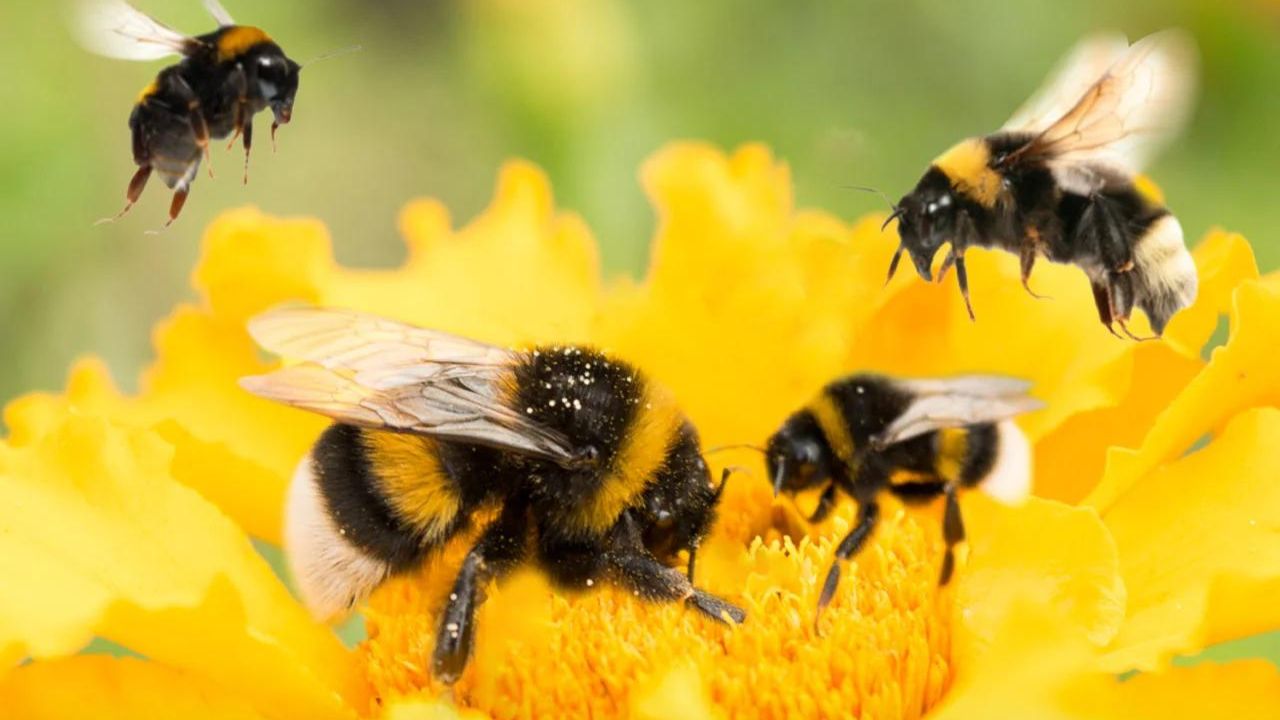In a noteworthy revelation, a recent study has brought to light a surprising aspect of bee behavior: they cannot taste even lethal levels of pesticides. Bees play a crucial role as pollinators in the cultivation of agricultural crops, but their foraging activities for nectar and pollen expose them to pesticides, some of which can be highly toxic. Given their adeptness at tasting and discerning sugary solutions, researchers delved into whether bees could employ their sense of taste to avoid consuming pesticides during their foraging endeavors.
The study focused on bumblebees (Bombus terrestris) and specifically investigated their ability to detect neonicotinoid and sulfoximine pesticides in nectar, mimicking the conditions of oilseed rape (Brassica napus) fields. To assess the bees’ response to these pesticides, two methodologies were employed. First, electrophysiology was utilized to record the activity of neurons in the taste sensilla (tastebuds) located on the bees’ mouthparts. This approach allowed researchers to monitor the frequency of neuron firing, providing insights into the strength of the response to the taste. Simultaneously, the researchers observed the feeding behavior of bumblebees by presenting them with options of pure sugar solutions or sugar solutions laced with pesticides.
Contrary to expectations, the results indicated that the neurons’ responses were consistent whether the bees consumed a sugar solution or one infused with pesticides. This crucial finding implies that the mouthparts of bumblebees lack mechanisms to detect and avoid common pesticides present in nectar. Essentially, the study challenges the assumption that bees, with their intricate taste capabilities, possess an innate ability to discriminate against and avoid harmful pesticides while foraging.
The implications of this discovery are significant, shedding light on the vulnerability of bees to pesticide exposure and raising concerns about the potential impact on their populations. Bees, pivotal for the pollination of various crops essential for food production, face a heightened risk when their foraging activities intersect with pesticide-laden nectar. As the agricultural landscape continues to grapple with the challenges of balancing pest control and the preservation of pollinators, this study underscores the need for a nuanced understanding of bee behavior and the development of strategies to safeguard their well-being in the face of pervasive pesticide use.
In essence, the intricate interplay between bees and pesticides reveals a previously overlooked aspect of their sensory capabilities. The study prompts a reevaluation of assumptions about the ways in which bees navigate their environment and respond to potential threats, particularly in the context of the agricultural practices that define our food production systems. As scientists delve deeper into the complexities of bee behavior, the findings of this study contribute to a growing body of knowledge that informs efforts to strike a balance between sustainable agriculture and the preservation of essential pollinators.








